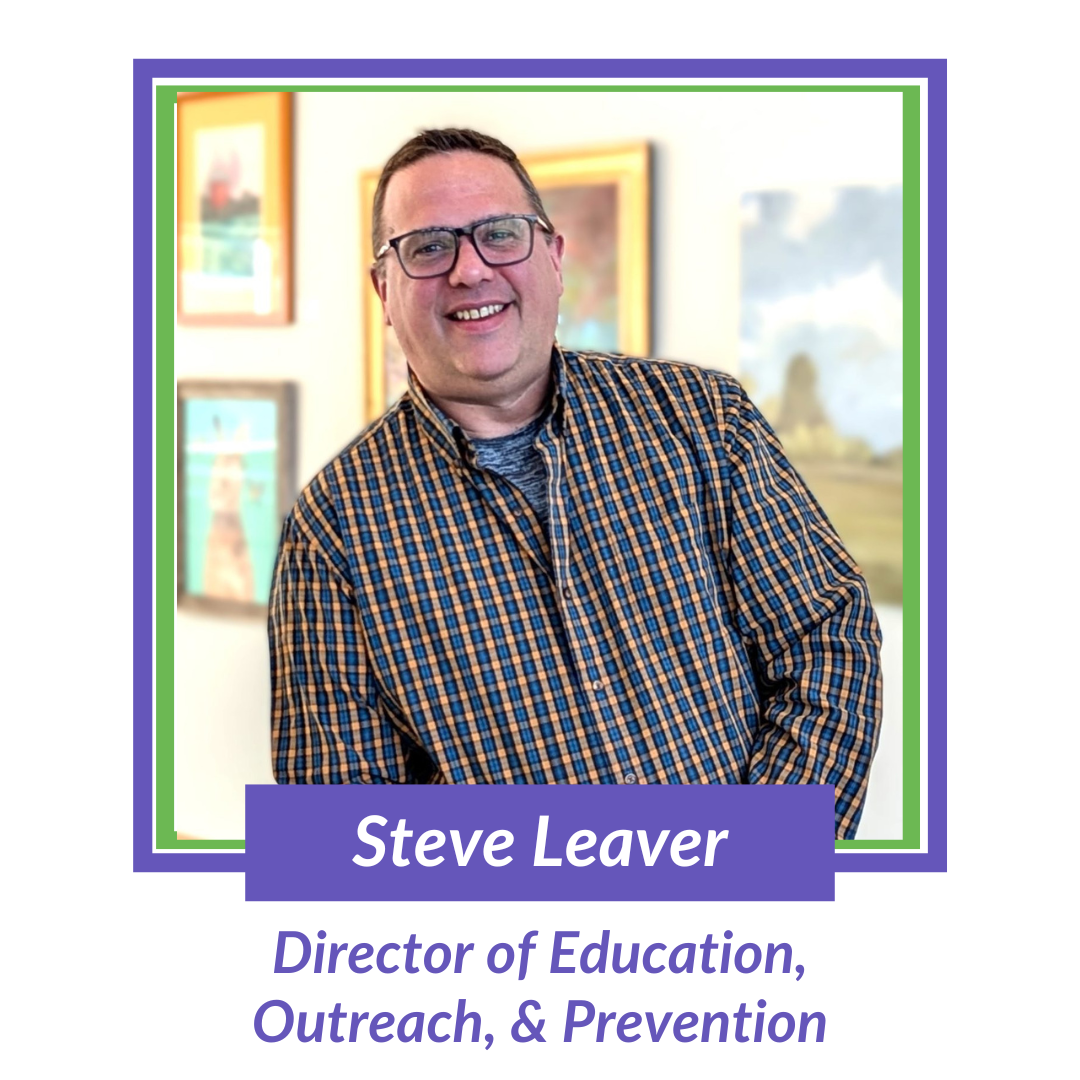April is National Child Abuse Prevention Month—a time to raise awareness, share resources, and strengthen our collective commitment to keeping children safe. In recognition of National Child Abuse Prevention Month, we spoke with Steve Leaver, ChicagoCAC’s Director of Education, Outreach, and Prevention, about how his team is leading citywide efforts to empower adults and protect children.
To learn more about what you can do to stop human trafficking, check out our upcoming webinar, How To Talk About Prevention, on April 18th to learn how you can keep youth safer and invigorate communities to end child sexual abuse for future generations.
***
Tell us about your role at ChicagoCAC.
I am the Director of Education, Outreach, and Development at Chicago Children’s Advocacy Center. I oversee curriculum development, program evaluations, and collaborations with partners. I manage a team of four educators who bring training to professionals and caregivers all around the city.
Who do you work with (parents, teachers, community organizations) and what does that outreach look like?
We do trainings for parents, educators, librarians, park district employees, as well as professionals who work in the field of child sexual abuse prevention. We go into communities to provide information at tabling events, we conduct listening sessions, and work with a variety of partners including Community in Schools of Chicago, Chicago Public Schools, the Chicago Park District, Chicago Public Libraries, and others to get this training out to the communities.
Why is child abuse prevention so important, and what impact does early prevention have on children and families?
1 in 10 children will experience sexual abuse before they reach the age of 18. It is important that we give adults the tools on how to talk to children about what sexual abuse is, how to protect themselves and what their rights are when it come to their own bodies. Having these conversations start at an early age not only gives kids tools and knowledge on what is safe and unsafe, but it builds a sense of trust and shows kids that they can come to adults with questions they have when it comes to sex, their bodies, and relationships down the road. It also establishes what consent is at a very early age so when kids grow into their teenage years and begin relationships, they already have a good sense of what consent looks like. Often times, there is a strong sense of shame that can stay with a survivor of sexual abuse for years. Prevention also is about making children realize that it is never their fault if they experience abuse, thus hopefully, emboldening them to find a safe adult they trust to come to if they ever experience abuse and begin the healing process more quickly.
What message do you want to share with Chicagoans about the role we all play in keeping kids safe?
We believe that adults are responsible for keeping kids safe and thus, every adult should be trained when it comes to preventing sexual abuse. Even if you don’t have children of your own, you may end up being that safe adult for a child who you teach, coach, or mentor. You may have nieces or nephews, or maybe are a trusted neighbor. It’s important that everyone knows how to recognize signs of abuse and what to do if a child should ever disclose that they are being abused.
What are some simple but effective ways adults can help prevent child abuse in their own communities?
Start having conversations with kids and adults in your own communities. The more we are able to talk about this, the safer our communities will be. Many times, adults are afraid or don’t know how to talk to children in a developmentally appropriate way. Learning about what is normal vs. abnormal behavior at different developmental stages and what language to use with kids when talking about body parts and keeping themselves safe is a great first step to reducing those fears and begin the conversations.
If someone suspects abuse or has concerns about a child’s safety, what should they do?
If someone suspects abuse or has concerns about a child’s safety, they should call the Child Abuse Hotline at 1-800-252-2873 or if the child’s life is in danger, dial 911.
How can people get involved with ChicagoCAC’s prevention efforts or access resources to learn more?
People can get involved by exploring our free prevention resources here or by registering for an upcoming training here. Whether you’re a caregiver, educator, or community member, we can all help build safer communities for children.

